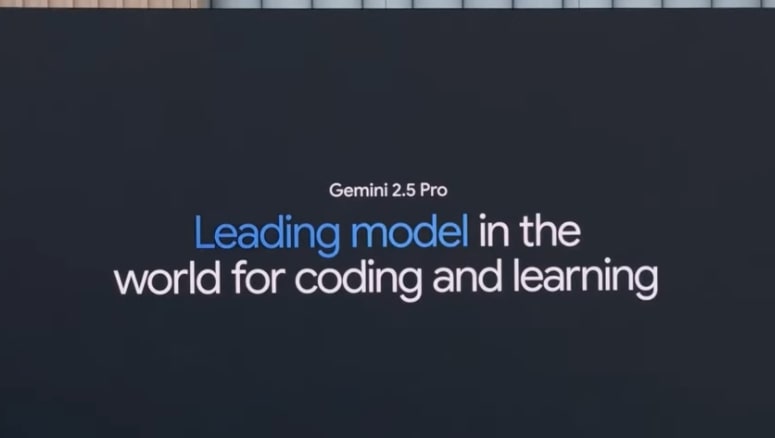Can We Digitally Record And Reproduce Taste? Exploring The Possibilities

Welcome to your ultimate source for breaking news, trending updates, and in-depth stories from around the world. Whether it's politics, technology, entertainment, sports, or lifestyle, we bring you real-time updates that keep you informed and ahead of the curve.
Our team works tirelessly to ensure you never miss a moment. From the latest developments in global events to the most talked-about topics on social media, our news platform is designed to deliver accurate and timely information, all in one place.
Stay in the know and join thousands of readers who trust us for reliable, up-to-date content. Explore our expertly curated articles and dive deeper into the stories that matter to you. Visit NewsOneSMADCSTDO now and be part of the conversation. Don't miss out on the headlines that shape our world!
Table of Contents
Can We Digitally Record and Reproduce Taste? Exploring the Possibilities
The tantalizing aroma of freshly baked bread, the sharp bite of a perfectly ripe lime, the comforting sweetness of dark chocolate – taste is a fundamental human experience, deeply intertwined with memory and emotion. But could this subjective sensory experience ever be digitally captured and reproduced? While the idea might seem like science fiction, recent advancements are pushing the boundaries of what's possible, sparking exciting possibilities in fields ranging from culinary arts to healthcare.
The Challenge of Digitizing Taste:
Unlike sight and sound, which have readily digital equivalents (images and audio files), taste presents a unique challenge. It's a complex interplay of chemical receptors on our tongues, interacting with various compounds in food and drink. These interactions trigger electrical signals sent to the brain, interpreted as specific tastes: sweet, sour, salty, bitter, umami, and potentially others. Reproducing this intricate biochemical process digitally requires a deep understanding of these mechanisms.
Current Approaches and Technological Advancements:
Several research avenues are exploring methods for digitally recording and reproducing taste:
-
Electronic Tongues: These devices utilize arrays of sensors that measure the electrical conductivity changes in response to different food components. While not perfectly mimicking human taste perception, they can provide a quantitative analysis of taste profiles, useful for quality control in food production and identifying potential contaminants.
-
Gas Chromatography-Mass Spectrometry (GC-MS): This technique identifies volatile compounds in food, which contribute significantly to aroma and flavor. By analyzing the chemical composition of a food sample, researchers can build a digital "fingerprint" of its taste profile. However, this method doesn't capture the complete sensory experience, as taste involves more than just aroma.
-
Artificial Intelligence (AI) and Machine Learning: AI algorithms can analyze vast datasets of taste information, including chemical profiles and human sensory evaluations. This could lead to the development of predictive models capable of simulating taste experiences based on ingredient combinations and processing techniques. This approach holds significant potential for personalized food recommendations and the creation of novel flavors.
-
Brain-Computer Interfaces (BCIs): This cutting-edge technology aims to directly interface with the brain's sensory areas, potentially allowing for the direct stimulation of taste receptors. While still in early stages of development, BCIs could eventually enable the recreation of specific taste sensations.
Applications and Future Implications:
The ability to digitally record and reproduce taste could revolutionize various industries:
-
Culinary Arts: Chefs could experiment with new flavors and create personalized dining experiences tailored to individual preferences. Imagine restaurants offering "taste profiles" for menu items, or even allowing diners to design their own culinary experiences.
-
Healthcare: Digital taste reproduction could benefit individuals with taste disorders or those undergoing chemotherapy, providing a means to enhance their enjoyment of food. It also holds potential for developing personalized nutritional solutions.
-
Food Industry: Quality control and product development could be significantly improved by utilizing digital taste analysis to ensure consistency and create new products.
Challenges and Ethical Considerations:
While the potential benefits are significant, challenges and ethical concerns remain:
-
Accuracy and fidelity: Reproducing the nuances and complexity of human taste perception remains a major hurdle.
-
Data privacy: Collecting and analyzing taste data raises concerns about individual privacy and the potential for misuse.
-
Accessibility: Ensuring that digital taste technology is accessible to everyone, regardless of socioeconomic status, is crucial.
Conclusion:
While we're not yet able to perfectly replicate the experience of taste digitally, significant progress is being made. The convergence of advanced sensor technologies, AI, and brain-computer interfaces offers a glimpse into a future where digitally recorded and reproduced taste could transform our relationship with food and revolutionize various aspects of our lives. Continued research and careful consideration of ethical implications will be crucial in shaping the responsible development of this exciting field.

Thank you for visiting our website, your trusted source for the latest updates and in-depth coverage on Can We Digitally Record And Reproduce Taste? Exploring The Possibilities. We're committed to keeping you informed with timely and accurate information to meet your curiosity and needs.
If you have any questions, suggestions, or feedback, we'd love to hear from you. Your insights are valuable to us and help us improve to serve you better. Feel free to reach out through our contact page.
Don't forget to bookmark our website and check back regularly for the latest headlines and trending topics. See you next time, and thank you for being part of our growing community!
Featured Posts
-
 Rafizis Farewell Reflecting On His Political Journey And Malaysias Future
May 25, 2025
Rafizis Farewell Reflecting On His Political Journey And Malaysias Future
May 25, 2025 -
 Club Boss Announces Stars Future Provides Update On Young Talent Need Clarification
May 25, 2025
Club Boss Announces Stars Future Provides Update On Young Talent Need Clarification
May 25, 2025 -
 Power Shift In Malaysian Politics Nurul Izzahs Rise To Prominence
May 25, 2025
Power Shift In Malaysian Politics Nurul Izzahs Rise To Prominence
May 25, 2025 -
 Google I O 2025 Key Announcements And What They Mean For You
May 25, 2025
Google I O 2025 Key Announcements And What They Mean For You
May 25, 2025 -
 The Wheel Of Time Officially Cancelled By Amazon
May 25, 2025
The Wheel Of Time Officially Cancelled By Amazon
May 25, 2025
Latest Posts
-
 No Criminal Charges For Boeing Department Of Justice Reaches Settlement On 737 Max Crashes
May 25, 2025
No Criminal Charges For Boeing Department Of Justice Reaches Settlement On 737 Max Crashes
May 25, 2025 -
 The Promise Of Laser Fusion Achieving Commercial Scale Energy
May 25, 2025
The Promise Of Laser Fusion Achieving Commercial Scale Energy
May 25, 2025 -
 Indy 500 Race Pool Printable Starting Grid Download
May 25, 2025
Indy 500 Race Pool Printable Starting Grid Download
May 25, 2025 -
 Face Au Nouveau Variant Covid 19 Que Devons Nous Savoir
May 25, 2025
Face Au Nouveau Variant Covid 19 Que Devons Nous Savoir
May 25, 2025 -
 Solve Crosswords And Play Games Subscribe To Usa Today Play
May 25, 2025
Solve Crosswords And Play Games Subscribe To Usa Today Play
May 25, 2025
